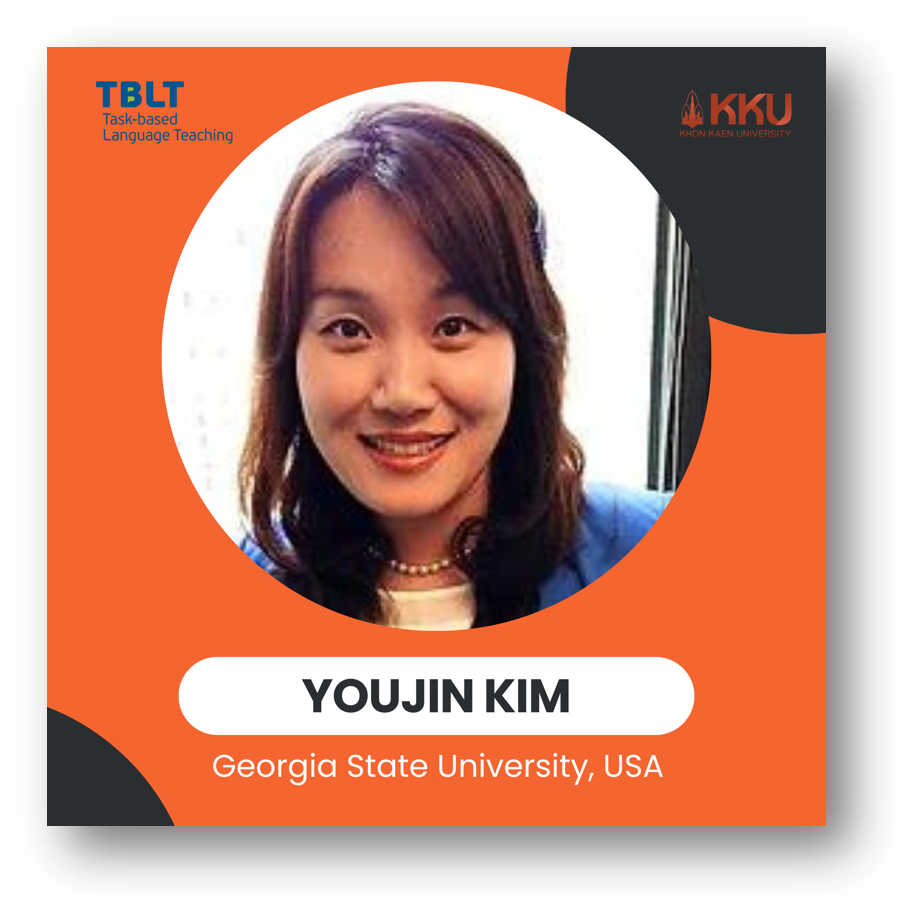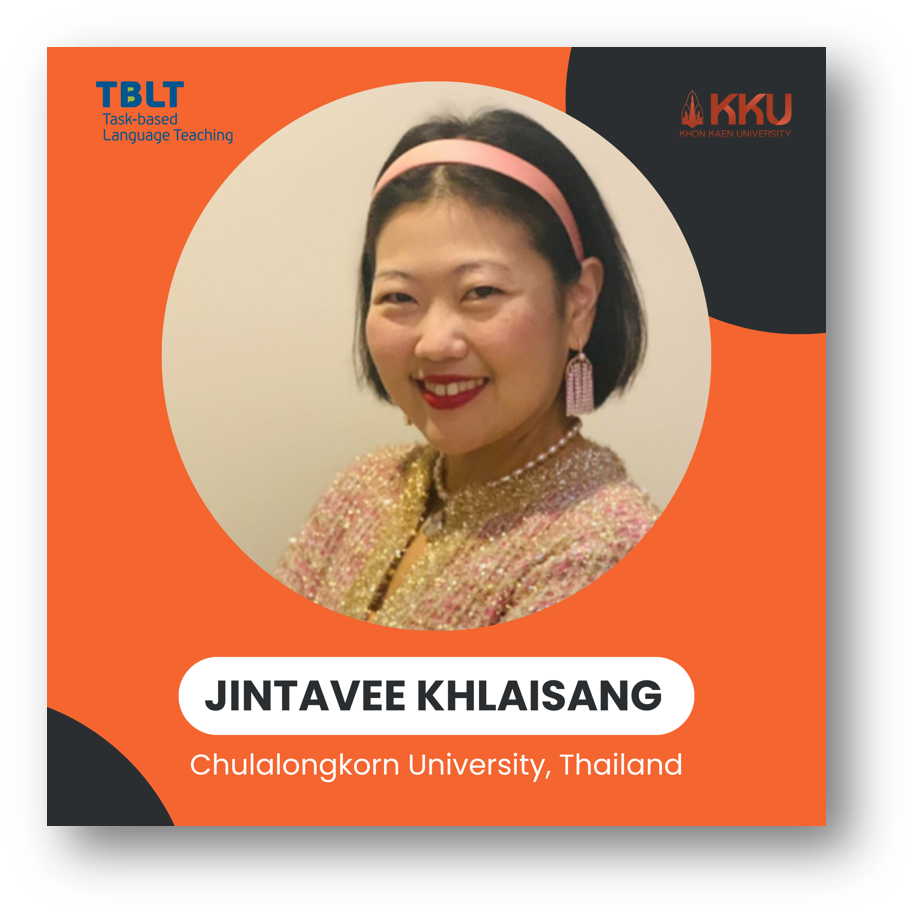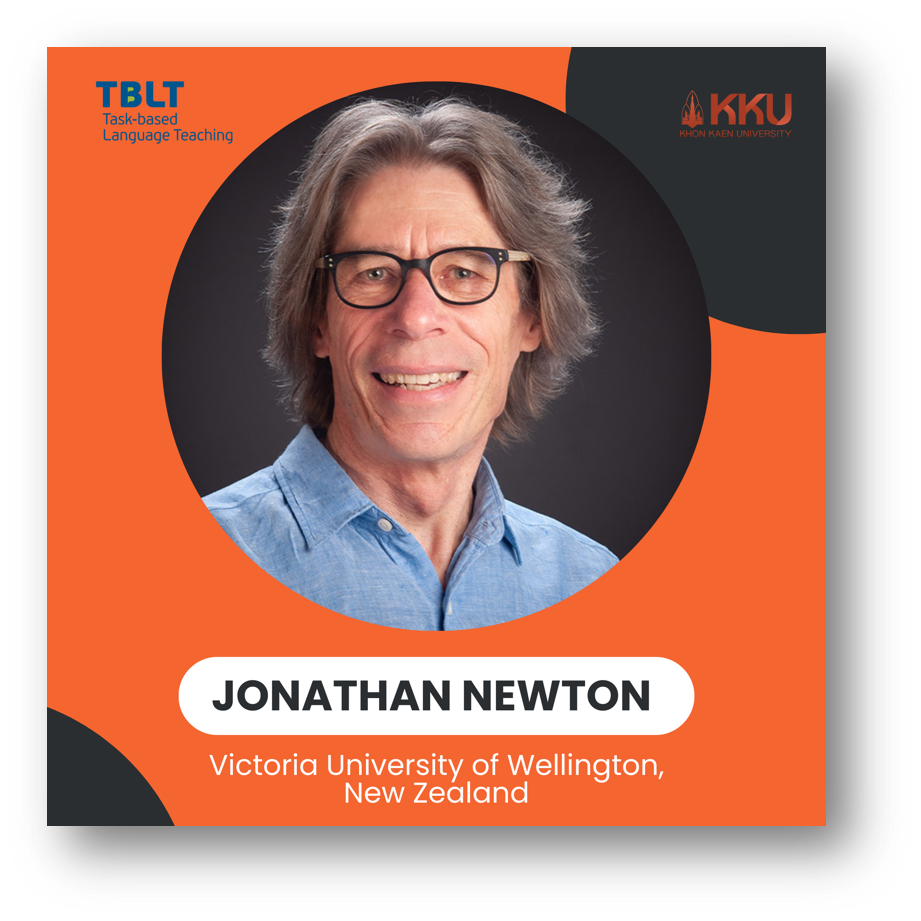Plenary Speakers
31/May/2023PLENARY SPEAKERS

|
|
“It Takes a Village”: Developing and implementing sustainable TBLT curricula
Over the last three decades, the field of TBLT has expanded significantly in terms of research topics, research methods, and practical applications to language teaching. For instance, by adapting several aspects of SLA research methods, an increasing amount of research has examined various task design and implementation features as well as task-based language performance and development (Ellis et al., 2020). However, multiple “real issues” in TBLT still remain (Long, 2016), such as research-informed TBLT curriculum development, task-based assessment, researcher-practitioner collaborations, and in-service teacher education, among others. In this presentation, I examine some of the “real issues” in TBLT that go beyond individual task design and address concerns regarding course and program curriculum development. I argue that, in order to see real long-term impact of TBLT research on language program development, researcher-practitioner collaborations that value all stakeholders’ needs and interests is essential.
In this presentation, I begin with a review of TBLT research with a particular focus on language program curriculum design. I then discuss a research-informed curriculum development project that I led in a Korean language program at a US university for four years, while working with a program director, classroom teachers, and students (Kim et al., 2021). In particular, I focus on how classroom-based studies conducted during the project (Kim et al., 2020, 2022) were used to inform the design of the curriculum and show how TBLT teacher cognition — what teachers know, believe, and think about TBLT — developed over time. I conclude by highlighting challenges associated with collaboration among stakeholders, and more importantly, how to overcome these challenges in order to develop sustainable TBLT curricula.
|

|
|
Task-based Design: A history of resilience and a space for innovation
Task-based design is serious business for teachers and syllabus designers around the world. Proof of that is the proliferation over the last 40 years of task-based language programs training teachers in all aspects of TBLT as well as the incorporation of TBLT as national education policy in many countries worldwide (e.g. Thailand). Yet concerns have been raised about a disconnect existing between research findings and decision-making by teachers and syllabus designers, often left to their own resources during design, requiring considerable resilience from them. Firstly, I will provide an overview of what have been mostly top-down sources of information for teachers wanting to engage in task design, such as a vast task-based research literature, various specific task-based programs around the world, and general teacher training being minimally task-based. Secondly, I will suggest that needs analysis, in all contexts and for all purposes, may offer a partial solution to the problem. Insights from needs analysis may enormously aid both micro and macro decision-making regarding individual tasks and entire syllabi. Thirdly, I will claim that task and syllabus design need to open up to principles outside TBLT that provide considerable room for bottom-up design by incorporating teachers and teacher communities. An inspection of other field that may inform task-based design, such as human-machine interaction design or learning design, will be followed by a reflection on how principles and practices coming out of those neighboring fields may generate new spaces for innovation and new avenues for task-based design in the 21st century.
|

|
|
Empowering Future Sustainable Lifelong Learning: Navigating the uncertain post-COVID-19 era through digital transformation and global citizenship
The COVID-19 pandemic has driven significant transformations worldwide, necessitating rapid technology adaptations in daily life and reshaping work and education. This accelerated global digital transformation has exceeded expectations, enhanced operational effectiveness and efficiency while fostered organizational resilience against potential digital disruptions.
This plenary session comprehensively analyzes the implications of the current situation, empowering future sustainable lifelong learning with a focus on fostering global citizenship. The discussion centers on three key aspects that highlight the transformative potential unleashed by the pandemic.
Firstly, it explores the readiness of individuals and organizations to embrace disruptive technologies and innovation as drivers for growth. Emphasizing their importance reveals how they act as catalysts for positive change. Secondly, the session highlights the significance of tailored digital content aligned with future professional skills. Equipping individuals with essential knowledge and competencies to navigate the evolving digital landscape is critical. Lastly, it addresses the challenge of fostering resilience and nurturing a growth mindset, vital for embracing continuous learning, unlearning, and relearning. These qualities enable individuals to adapt, overcome obstacles, and thrive in an ever-changing world. This plenary session sheds light on the essential factors empowering future sustainable lifelong learning. By acquiring necessary skills and mindsets, individuals can navigate the uncertainties and lasting effects of the pandemic, ultimately thriving as informed global citizens.
|

|
|
The Coursebook in Task-Based Language Teaching: Lost cause or launching pad?
The coursebook has been criticized in the TBLT community for, among other things, perpetuating synthetic syllabi and over-emphasizing the study of language as an object. And yet commercially published coursebooks are the mainstay of language classrooms around the world, especially in the teaching of English as an additional language in many Asian countries. Here, coursebooks are typically developed under contract as ‘bespoke’ resources in response to national curriculum directives that increasingly mandate ‘tasks’ (or even ‘TBLT’). This situation offers a valuable opportunity for research into how TBLT is being interpreted in national language policy and translated into curricula, resources (i.e., coursebooks), classroom practice, and, ultimately, into learning outcomes. Accordingly, in this talk I discuss case studies of the design and use of nationally mandated coursebooks in Thailand, China and Vietnam. I draw insights from these studies into alignments and misalignments between coursebooks and TBLT, paying attention to how teachers interpret and implement coursebook tasks. Research of this kind is increasingly important to goals of developing understandings of TBLT-in-practice. It allows us to identify where the practice of TBLT is taking hold, how it is being adapted, and where it needs attention. These understands, in turn, ensure a more contextualized response to the question posed in the title of this talk, which I return to by way of conclusion.
|